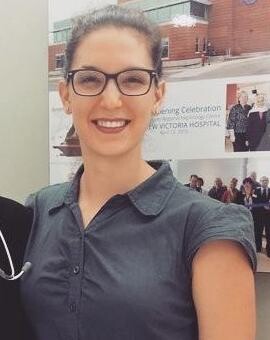Mobile Menu
- Education
- Faculty
- Research
- News & Events
- Divisions
- Equity, Diversity & Inclusion
- About Us

 Written by: Dr. Emily Delpero, PGY3 ObGyn Resident
Written by: Dr. Emily Delpero, PGY3 ObGyn Resident
I’m grateful to be part of a pilot program offered through Dalla Lana School of Public Health and the Munk School of Global Affairs to develop my skills in health journalism. The “Certificate in Health Impact” aims to teach students how to contribute to wider conversations on health and wellness through different modes of communication, both written and audio. My cohort includes co-resident Dr. Michael Chaikof and other physicians, as well as graduate students working in health-related fields. We are mentored by senior journalists who guide us through the process of pitching and producing stories, and I’m pleased to share my first product of this course.
I became curious about this topic on my MFM rotation at Sunnybrook, where I observed how the obstetrics and neonatal teams collaborate to care for patients facing the possibility of preterm birth at very early gestational ages.
From the previous teaching, I had understood that babies born below 24 weeks weighing less than 500g “didn’t do very well”. But what did that mean? Here we were, working with preemies who were much younger and lighter. Why were we doing this? Were we doing the right thing? Those were hard questions to formulate aloud and at the time, I assumed that our actions had to do with better technology. Still, these questions followed me.
What is compelling about this topic is that it strikes right at the centre of two pillars of medical ethics – First Do No Harm, and Patient Autonomy. I wanted to know more about the choice of whether or not to resuscitate so I went to see Dr. Doug Campbell, director of the NICU at St Michael’s Hospital. He surprised me by saying that much of why we’ve started to resuscitate younger and younger infants is that – beyond our science – “we’ve actually become better at making decisions with families, not for them.” He then suggested a few authors I should read and some physicians I should track down. The story unfolded from there.
I am very grateful for the obstetricians, paediatricians and patients who made the time to speak with and educate me. Mostly this feels like a beginning, both because I’m still early in my training and have a lot to learn, and because there is no way to capture all of the considerations that go into caring for these families in one article.
I am fortunate to be a part of a residency program that enables me to explore these other dimensions of healthcare. I’ve had some great feedback from colleagues already and am looking forward to the next steps.
Read Dr. Delpero's full article "Medical science can save younger and younger babies. Medical culture is changing as a result" on Healthy Debate.
______________________________________
Don't want to miss a post? Follow us on social media for more news!
FACEBOOK | INSTAGRAM | TWITTER
If you would like to be a guest blogger, please contact us at obgyn@utoronto.ca.
